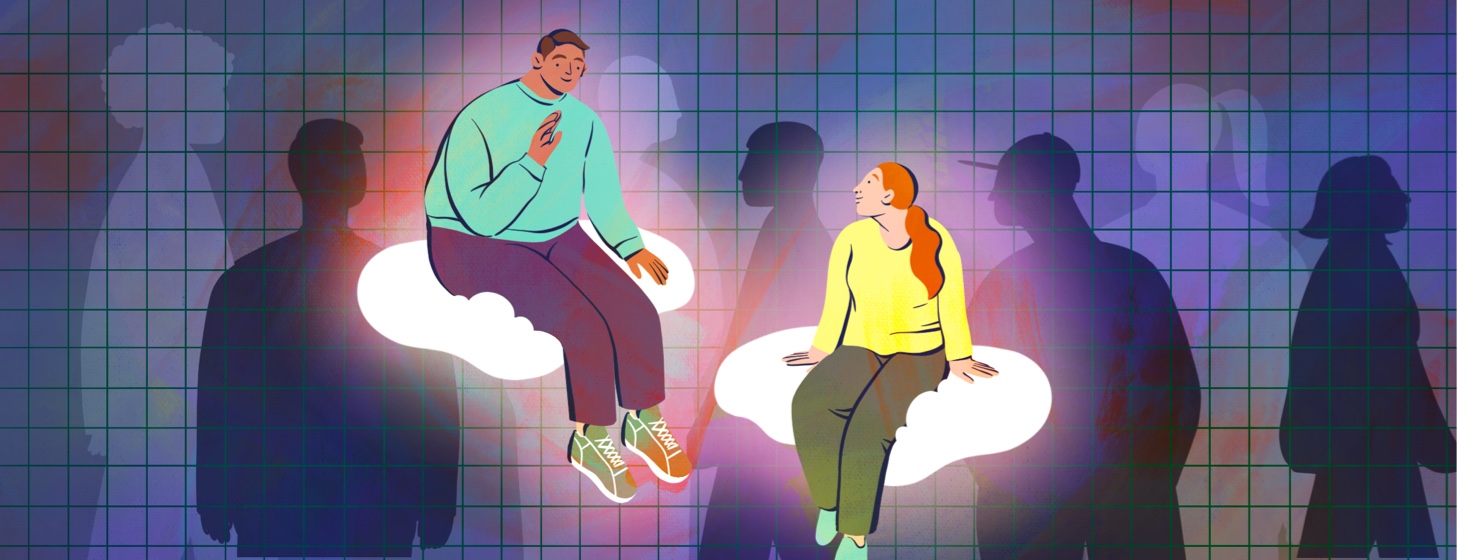Finding Support in Tough Times
Find your "support system." One of the most common terms we will hear and use while on this blood cancer journey and even after.
It is most definitely a true statement let me assure you. But one must ask what does it really mean? And just why is it said continuously and from each person you seem to encounter? For one, it's because it's vitally important regardless of how strong you think you are.
You will need support of some kind at some time. I can speak from personal experience that when I was first diagnosed, I made the mistake of thinking I could do everything on my own. I suited up in my Superwoman gear as I did every day and took on the world. This eventually affected me physically, emotionally, mentally, and even spiritually. What I didn't consider was how it would affect my relationships with those I loved.
What is a support system?
It's a network of people that offer you practical or emotional support. The people in your life that you know you can rely on as needed. Those you can count in any capacity without hesitation. When you hear support system, your mind tends to go to relatives and immediate family. For most of us, that is the best choice. However, when you allow yourself to really think about the meaning of a Support System, you will see it from a different point of view. You will see who your support system is and who it isn't. That may begin by really knowing what you need and how you need things done.
Discovering what you need
You may find that it takes some time to fully know all you need. And guess what? That is perfectly fine! It's been seven years and I am still learning what I need and discovering that it evolves and changes over time. That is not what you need to focus on as much as staying strong to ask for the help and the rest that you need. One of the main types of support we need is social support.
Helpful kinds of social support
- Emotional Support- Spending time with close friends and loved ones. When someone calls or comes by to have an enjoyable conversation (non-cancer related! LOL!) sharing a good laugh. Going out for lunch or dinner, your favorite Starbucks run (well maybe that's just my friends 😂), going shopping or just a day out to enjoy some fresh air.
- Informational Support- Receiving positive, healthy information such as watching exercise videos. Downloading meditation apps on your phone, reading articles, listening to audiobooks, listening to podcasts on information that strengthen you and foster health and happiness.
- Tangible Support- Those who offer to do the things for you that you need. Assisting with laundry, housecleaning, walking the dog, cooking meals, driving you to run errands, running errands for you. It's the practical support that makes you feel that you are not alone.
- Affirmational Support- Giving back and helping others. It can be as simple as a sincere compliment or recognizing others' accomplishments. It's also volunteering and community support.
- Belonging Support - Most often found in groups or organizations where we share the same spirit or motivation. This is usually found in houses of worship, gatherings of faith, cancer support groups, community centers, cancer hospitals or centers. Anywhere where the focus is "We are all in this together!"
Create your system
Once you identify what you need then begin to build your support system. Answer honestly when people ask if you need anything. Keep in mind these people may not always be immediate family members or your closest friends. Consider the people you are around and circles you are in. You will be surprised by who is genuinely willing to be there. Don't push people away waiting for who you think should be there or trying to do it all yourself. Remember this isn't just for you, it's for them too! They need to bless you as much as you need to be blessed!

Join the conversation